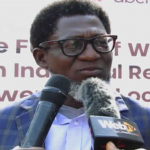As the year 2020 begins to take shape, WebTV recently interviewed the President of the Renewable Energy Association of Nigeria, Mr. Segun Adaju, on his outlook for the power and energy sector in the year 2020.
Adaju said the future of the energy sector in Nigeria hinged on consistency in deepening the supply mix, with renewable energy playing a major role.
He was of the view that Nigeria should focus on achieving a minimum of 40% renewable energy by the year 2030, driven by a clean air policy, in preparation for a cleaner energy environment and the attainment of sustainable development goals (SDGs).
Adaju gave an example of the Bayero University Kano (BUK) that has an embedded power system with 8 megawatts of power, with 3.1 megawatts being solar-driven and some battery-backed, adding to the existing diesel standby generator.
According to him, there are over 200m people in Nigeria, showing it is a huge market for distributed energy and renewables have to be at the forefront of the process.

He acknowledged the Rural Electrification Agency (REA) recently launched some mini-grids showing that the best way to get rural communities electrified quickly was through distributed energy and connecting them to the network, stating that the whole of Nigeria should not be waiting for a super grid alone.
Speaking further, he said there had been a major shift and improvement in the renewable space, with mini-grids on a commercial basis through private sector players.
He welcomed the licensing of 14 companies, given the responsibility of providing solar power to people not connected to the national grid.
Adaju lauded the recent passing of the Nigerian renewable energy, efficiency and mini-grid legislation.
“There has been a major improvement in policy initiatives around matters of custom duties and direct incentives. If there are more incentives, renewable energy will begin to experience faster offtake by Nigerians, helping the nation to meet the SDG goals,” Adaju said.
He also added that Nigeria is a signatory to the Paris Accord, which requires the country to be a part of the revolution in renewable energy technology.








